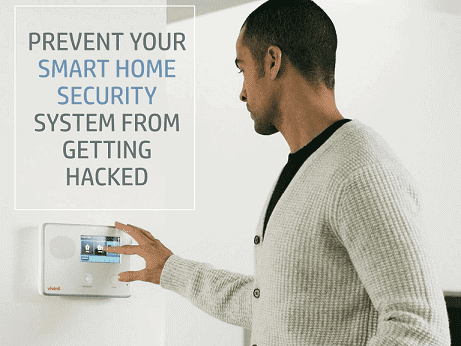The functionality of smart devices in our daily lives has become absolutely undeniable. Long gone are the days when owning a single smart device in any household was considered to be a privilege. Now, owning a smart device is more of a necessity. As globalization has made the entire world a global village, these devices keep us connected with our surroundings.
Home security systems have come a long way, and most of them can be integrated and operated with smart devices these days. Since the majority of smart devices operate over the World Wide Web, people all around the world face a major threat: the possibility of their devices getting hacked.
A general user is not aware of how a smart device actually works, as plenty of detailed programming lies behind the impressive GUI. Hackers are well-versed with the programming languages, and getting hold of your smart devices–especially the ones connected to your security system–can grant them easy access to your home and personal data.
Physical entry into a household used to leave a trail behind, like a broken lock or a shattered window. But today, potential criminals can access valuable information and equipment without leaving a physical trail, which is even more of a danger.
Let us consider some of the steps which can help you stay safe from these hackers, and in turn help you keep your house and your personal data safe!
Use Multi-Layered Authentication Systems
A single layer of passwords is not sufficient to protect your data anymore. People generally use a single password for a number of smart device locks, which can be a costly practice. Make it a habit of using different passwords for various devices, and don’t relate those passwords to data which can be easily acquired from your profile information (date of birth, family names, etc.).
If you have a smart security system installed in your household, you can ask the company to add additional layers of authentication for increased protection. Vivint home security systems give you the option of adding additional security measures.
Hackers often access your smart devices through phishing links and viruses. A number of websites you surf on the internet can give you the option of additional password checks by going through the settings tab, especially the ones which might require your credentials. This saves your personal data and save you money.
Keep Your Devices Updated
Make it a practice to keep all your smart devices updated with the latest software. Developers often update virus and malware definitions for smart devices, including smart home security equipment.
Doing so will keep the newer viruses and suspicious software at bay. A smart device present at a store might’ve been there for some time, so whenever you buy a new smart device, be sure to check for updates on its software.
Avoid Using Public Wi-Fi
Whenever going through a public Wi-Fi zone, it is advisable to turn off the auto-connect feature on your smart devices, unless it is absolutely necessary to use one. These free Wi-Fi zones might have a great number of intruders present who can detect a device with vulnerable defenses and target it accordingly.
Once inside the system, they can target all the applications present, including the ones operating your security systems, with your credentials already in place for the perfect sabotage.
You may use personal Wi-Fi hotspots from friends and family to avoid potential criminals from targeting you. Some trusted VPN services like Ivacy VPN can also be useful in this regard, but beware: a number of notorious VPNs sell your personal information to companies and agencies for profit.
Secure Your Home Wi-Fi
Wi-Fi routers have enhanced capabilities these days, including their operating range. Thus, they can often be connected by devices which are outside your home. As such, you need to make sure that your Wi-Fi is properly protected by comprehensive passwords. Otherwise, intruders can access various smart connected smart devices through your Wi-Fi.
You can also check how many devices are connected to your home Wi-Fi at any given time, and if any uninvited intruder is connected, take notice of it. You can also contact your service provider for added security measures.
Keep Your Smart Security System on a Separate Connection or Router
It is advisable to keep your security system connected to a separate router or an independent internet connection, if at all possible. That would give it added protection, in case a potential hacker does get into your system.
A VLAN can also be formed, which divides your network into multiple spaces. If one segment gets compromised, the other segments can still be protected independently. You can contact an IT company or a tech-savvy friend to help you out with setting up a VLAN system for your household.
Don’t Use Devices That You Don’t Recognize
It goes without saying that the chance of getting a virus from an unrecognized device is higher than from a recognized device. Never plug in a device into your system which you accidentally found lying outside your home or office.
Curiosity is basic human nature, and hackers are well aware of this. The moment you connect such a device with your system, be it a USB or a memory card, it takes control of your system, and voila, there goes your precious data.
Following these recommendations will most definitely keep your smart devices and your security system safe from intrusions. The key is to always be observant when it comes to safety and security, and to act promptly to avoid any threats.







